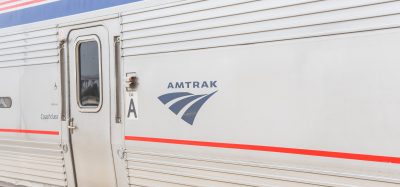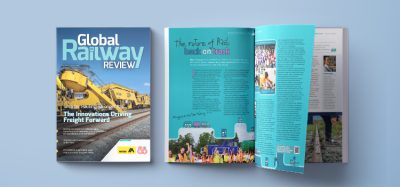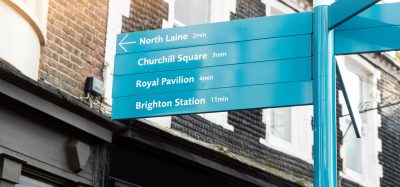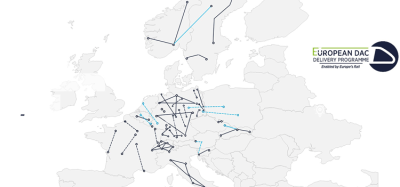Building rail’s future at GCRE
Posted: 12 July 2024 | Global Centre of Rail Excellence | No comments yet
For Global Railway Review’s latest Track Insight: Talent, the Global Centre of Rail Excellence outlines its plans to become a leading hub for rail innovation and skills development, revitalising local communities and establishing the UK’s first net zero railway.


The ambition of the Global Centre of Rail Excellence (GCRE) is to establish the facility as the world’s premier site for rail proving and innovation. We want it to become a genuine ‘one stop shop’ for the rail industry, serving markets not just in the UK but across Europe and the rest of the world, providing world class research, testing, certification, training and showcasing of new technologies and new ideas that can become the backbone of tomorrow’s greener stronger, and more affordable passenger and freight railways.
At GCRE, four missions define what we are trying to do:
- Rebuild local prosperity: GCRE will create long-term skilled jobs and prosperity in a community impacted by more than four decades of deindustrialisation, rebuilding hope, identity and pride for this and future generations
- Make transport better: GCRE will be an internationally unique facility for innovation in rail and sustainable mobility, supporting the development of stronger, greener and more affordable transport systems right across the world
- Establish a net zero railway: By building the UK’s first net zero railway, powered from on-site renewables and largely constructed from reused or recycled materials, GCRE will break new ground in the development of more sustainable infrastructure
- Renew an amazing place: GCRE will regenerate a former coalfield site, restore and improve its biodiversity to make it an attractive destination for visitors in a way that links its proud history with its bright future.
Those missions focus on more than just improving the railway and wider transport sector, but also concentrate on how we can give back to the economy, the region and the local community.
GCRE is located at the former Nant Helen open cast coal mining site near Onllwyn in South Wales. The 700 hectare site was mined for over 200 years, first through deep pits, but then as an open cast site from the 1940s. The villages scattered around the local valleys developed for one reason only – ‘King Coal’. The area once thrived as a place of quality employment and opportunity, but over the past 40 years de-industrialisation has damaged the local economy and now Neath Port Talbot has one of the highest levels of economic inactivity in Wales and the UK.
Over the years many found work at the steel plant down the road in Port Talbot, just 15 miles from the GCRE site, but recently it was announced that around 3,000 jobs are to be lost at the company factory over the next two years, a figure perhaps more than three times higher once the impact is felt across the supply chain. These are tough times for the regional economy.
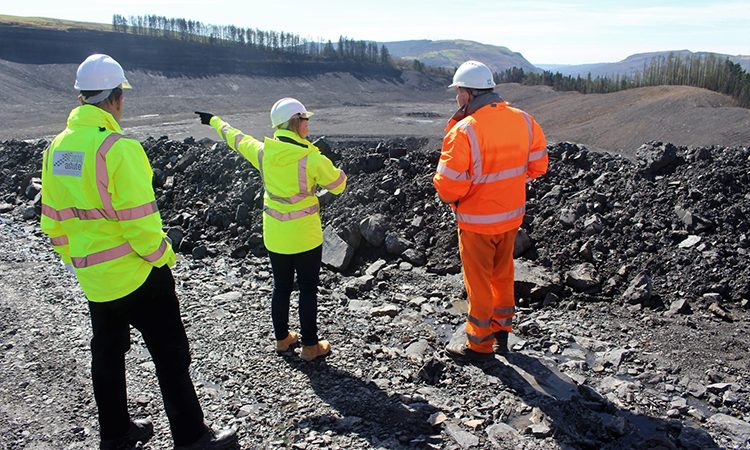

Credit: Global Centre of Rail Excellence
Rebuild local prosperity
We want people from local communities to fill as many of these roles as possible and to this end we plan to recruit and train as many individuals from the region as we can”
GCRE is not a silver bullet to the challenges the area faces, but it can be part of the answer. Our facility will create well paid and skilled jobs in the local community, helping to rebuild local prosperity and confidence at a critical time. We want people from local communities to fill as many of these roles as possible and to this end we plan to recruit and train as many individuals from the region as we can, tapping into the rich seam of skilled engineers and technicians that exist locally from a mining or steel industry background. We already have a number of the former opencast team working on site with us, now learning new skills as they make their transition into the rail industry.
In addition to the comprehensive rail testing facilities we will have on site, we plan to build a hotel; harness the renewable energy potential of the site and build a cutting edge technology park. Over the next 10 years it is estimated the GCRE site has the potential to create over 1000 jobs, demand that will require clear and accessible training paths for individuals living locally and in the wider region.
Rail skills will of course be the initial focus as we will need around 100 people on site with an industry background. To support this we plan to build a training academy, with practical learning areas and modern class room space which can utilise the very best in new digital tools.
But we need to do more than simply build the training rooms; we also need to encourage the local community to positively want to work in rail. To this end we are working with local schools to promote STEM and to think about careers in rail. Just recently, nearly 800 young people went through a project we ran with local primary schools and the not-for-profit organisation Primary Engineer to give young people a taste of engineering in the classroom. For some of the young people that live in the communities around our site, neither parent is in work – so the visibility of our facility and the role it can play in the lives of young people from the earliest ages is absolutely critical.
We are also exploring how we could deliver an accelerated training programme on site to create a pathway for ex-steel workers to find new careers in rail. In 2025 it is estimated there will be a gap in the supply of skilled rail workers nationally. Within 90 minutes of the Port Talbot site there will be a gap of circa 3400 for workers predominantly in maintenance or capital projects. GCRE can be a bridge not just to a positive future for young people, but for those impacted by job losses in the next few years, too.
Make transport better
GCRE will be a place of learning, research and development that can help develop the new technologies, products and innovations that will be backbone of the net zero transport systems of tomorrow”
As well as supporting the local community and developing our people and supporting partners on site, our ambition is to play a national role in helping to make transport better – but to do that you need creative people, high skills and deep knowledge. Data from the National Skills Academy for Rail (NSAR) shows the rail industry is currently failing to either attract and / or retain young talent, with the proportion of employees aged 30 and under having halved since 2016. As the sector begins to wrestle with a skills shortage, the demand generated by both retirement and investment is likely to further exacerbate the situation. Using a retirement age of 62 (typical for rail), it is anticipated around rail will need 50,000 new people to come into sector by 2030.
GCRE will be a place of learning, research and development that can help develop the new technologies, products and innovations that will be backbone of the net zero transport systems of tomorrow. Skills development is critical to this – the more knowledge people have the better they can contribute. We will have amazing facilities on site not available for training anywhere in Europe and we intend to use them to improve skills across the industry, something that will ultimately make transport better in the long term.
Utilising our testing loops, depot and dedicated training facilities we will work with partners from the training industry to develop a suite of modules and courses that will benefit students from across the UK and beyond. Initially GCRE will focus on a narrow set of competencies to establish our capability and further develop our offering, but post our 2027 opening – and as our facilities develop – the range of training offerings can also increase.
Digital and data skills will inevitably be a key area of focus as these are skills that are forecast to be in greater demand across all sectors in the coming years. For the rail sector to be attractive to future software engineers or data analysts or cyber security engineers, GCRE can provide a digital playground using AR, VR or MR simulations that allow rail to showcase the breadth of opportunities.
Longer term leadership development will also be offered on site but tailored to rail. It is widely recognised that leadership and management skills in the rail sector are lower than in other sectors. GCRE has the opportunity to do something quite specific to rail by providing training based around scenarios developed on an actual railway without having to close the running railway.
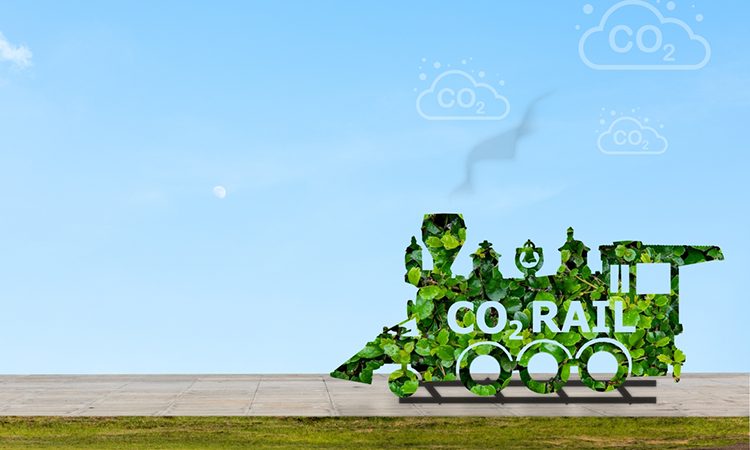

Establish a net zero railway
GCRE will be the first UK railway powered from on-site renewables and largely constructed from reused or recycled materials”
GCRE will be the first UK railway powered from on-site renewables and largely constructed from reused or recycled materials.
Sustainability will arguably be the greatest challenge of all for the rail industry over the next 50 years, requiring new skills and new capabilities that need to be developed and trained somewhere. GCRE provides will provide the ideal training ground, as a railway site powered by renewables, but not restricted in terms of access as an operational passenger or freight railway. GCRE can have areas we can safely shut down for high quality training, simulation and demonstration. Ours will be a facility where new technology is trialled and proved before being rolled out, allowing for people to be trained on that new technology before it becomes operational.
The challenge of sustainability is not just one for rail but all industries, with skills and competencies required in adjacent sectors that have a large overlap with rail. Whether it’s the need for high voltage power engineers or the development of new battery technologies for vehicles and rolling stock or different types of fuels to meet the net zero ambitions, there are many areas where GCRE can and will collaborate with other net zero sectors.
Renew an amazing place
Beyond the industrial uses of the site we intend the restore much of the area and enhance its bio-diversity to make the area somewhere the local community can be proud of. This creates some interesting challenges on a site which has been a working mine for over 200 years.
We are currently working with our local universities to explore how we do this and where new land science techniques can be harnessed. Using the site to develop new ecologist and bioscience learning stretches the impact of GCRE far beyond rail. We also want to understand what else is needed across the industry, we don’t want to recreate something that already works but add capability across the industry. Critical to GCRE is its ‘open to all’ ethos – we want to work with training providers and are very keen to hear what facilities you think we need.
At GCRE we’re going to be driving, not just innovation but, a world class skills programmes lifting the capability of the whole industry. We are building a facility for the future of the industry and we want you all to be part of it!
Related topics
Global Railways Review's Track Insight: Talent, Sustainability/Decarbonisation, Training & Development



